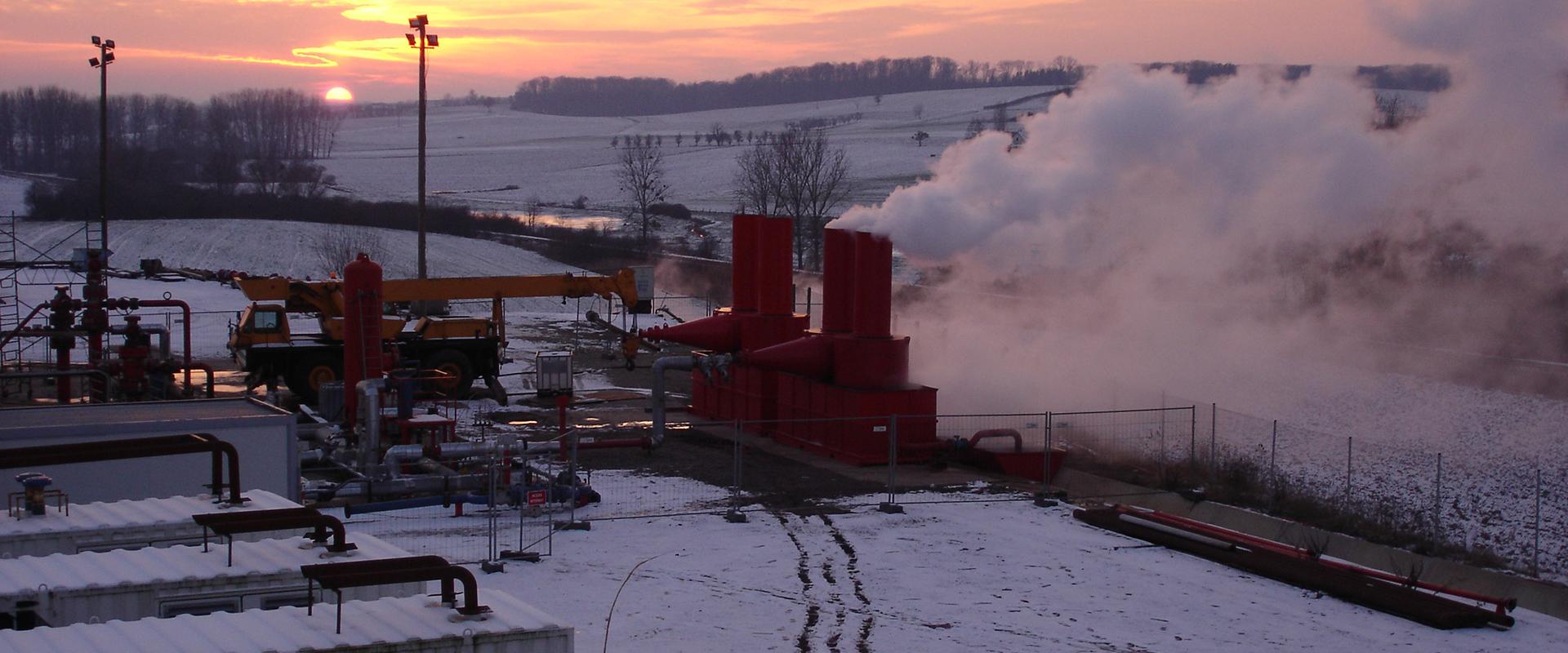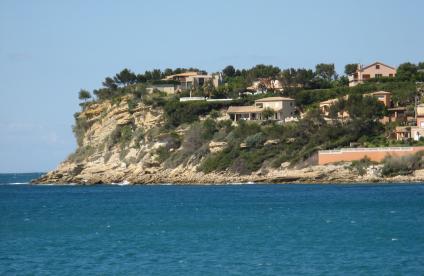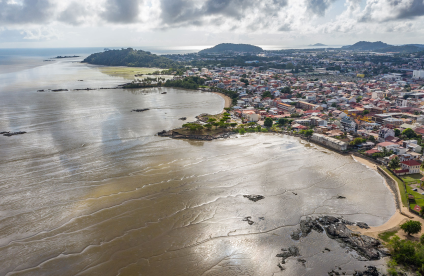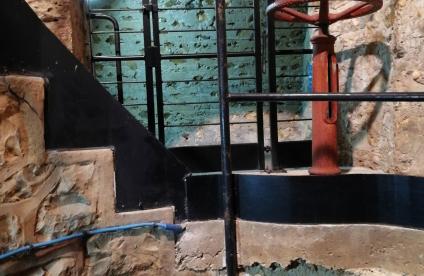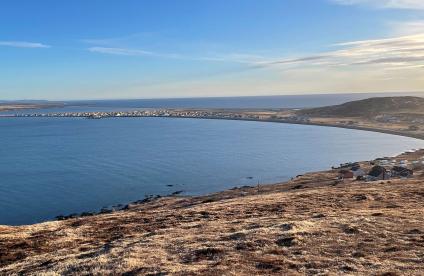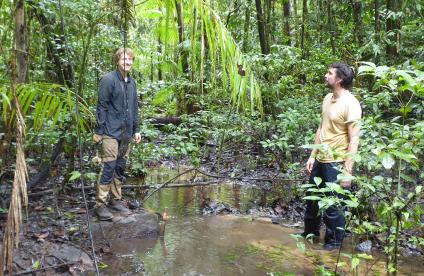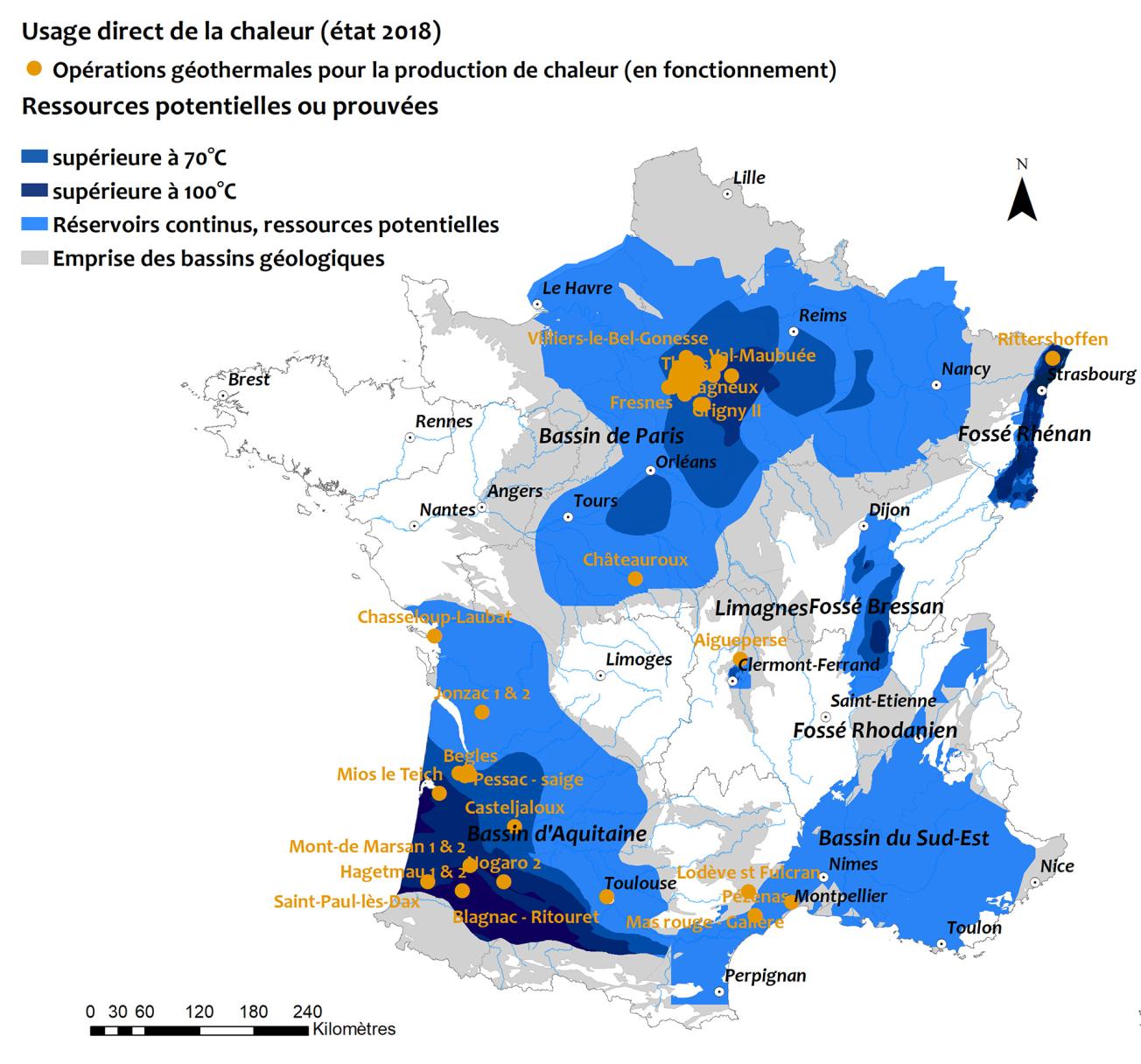
Mapping deep low-enthalpy geothermal operations in metropolitan France.
© BRGM
The need
To support the revival of geothermal energy and to meet the objective of the Multiannual Energy Programme (PPE), which is to encourage the implementation of new projects, ADEME has asked BRGM to conduct a full assessment of geothermal activity carried out since 2007, including:
- a summary of deep geothermal operations carried out and an assessment of the corresponding heat production;
- a summary of the heating networks connected to deep geothermal operations, whether new or extension, interconnection and/or densification schemes;
- a summary of the studies carried out to date, and acknowledging and promoting experiences;
- an analysis of the investment and operating costs of deep geothermal operations;
- a technical and economic analysis of the solutions to be implemented in order to best neutralise the risks of a deep geothermal project, particularly for targeted exploration in new sedimentary basins or little-known aquifers.
The results
The project achieved:
- a national assessment of geothermal operations based on data collected in "SYBASE", a project carried out in 2018 with the support of ADEME (report in French: BRGM/RP-68601-FR). This assessment included all deep geothermal operations, whatever the end use of the heat (district heating schemes in the Île-de-France region in particular, industrial processes, other uses, etc.), and also analysed the impact of geothermal operations on the heat distribution networks commissioned since 2005 in the Île-de-France region (new networks, extensions, etc.);
- a summary of R&D projects/studies co-financed by ADEME's national headquarters or its IÎe-de-France Regional Division. The aim of these studies was to overcome certain technical or scientific obstacles to carrying out and monitoring deep geothermal operations. These were various technological and/or scientific building blocks, including resource characterisation and modelling, construction technologies and conditions for accessing the resource, exploitation, monitoring of operations and decision support tools. The different geological areas targeted were the carbonate reservoirs of the Dogger and Lusitanian and the variously consolidated clastic reservoirs of the Albian/Neocomian and Triassic regions of the Paris Basin.
- a study of the operating costs of deep geothermal operations based on data provided by the prime contractors for 23 geothermal sites with a total of 43 boreholes drilled into the Dogger from 2008 to 2018. The analysis covered the capital investment in surface and drilling work (CAPEX) and operating costs (OPEX);
- a synthesis of available data (deep boreholes, seismic lines, geological/hydrogeological models, etc.) by sedimentary basin and a proposal for a basin by basin exploration programme on different scales (e.g. regional, local, project), in order to provide new knowledge for the exploration of new aquifers and to develop the current guarantee system for projects with a greater exploratory component requiring preliminary studies that are necessarily more costly.
Using the results
The project provided a significant synthesis of the the revival of geothermal energy since it began about ten years ago. This could serve as a communication and reference document to meet the objectives set by the PPE for increasing final heat consumption from deep geothermal energy from 1.2 TWh in 2017, to 2.9 TWh in 2023, and then to 4-5.2 TWh in 2028.
The partners
- ADEME
- Prime contractors for geothermal operations

